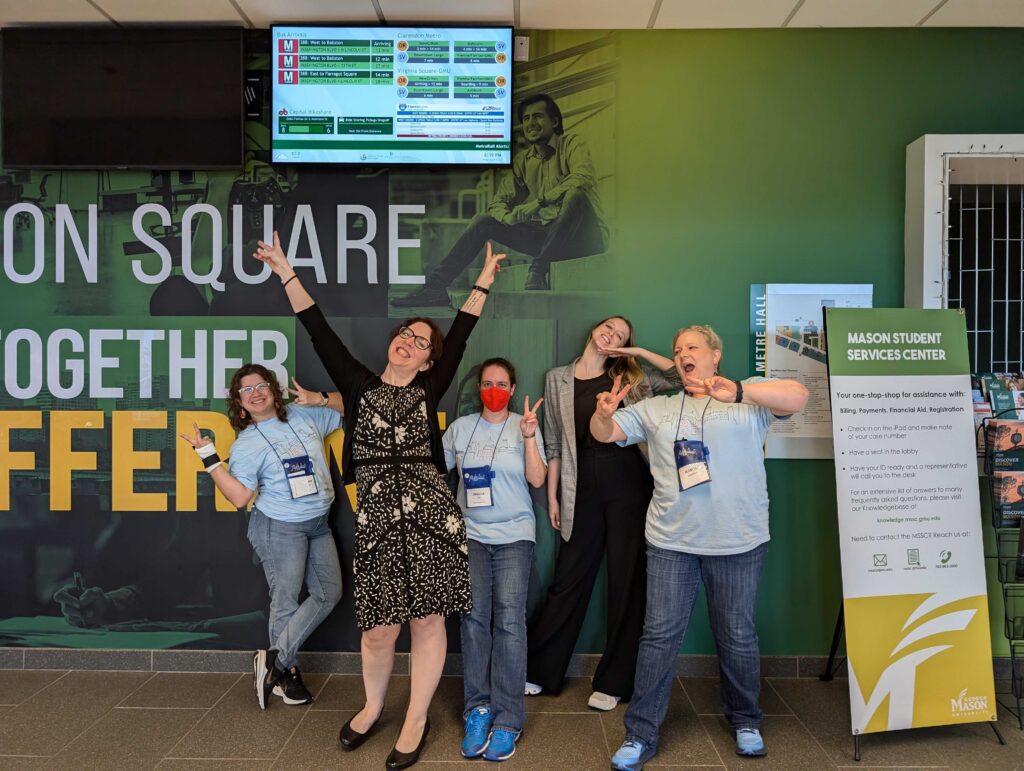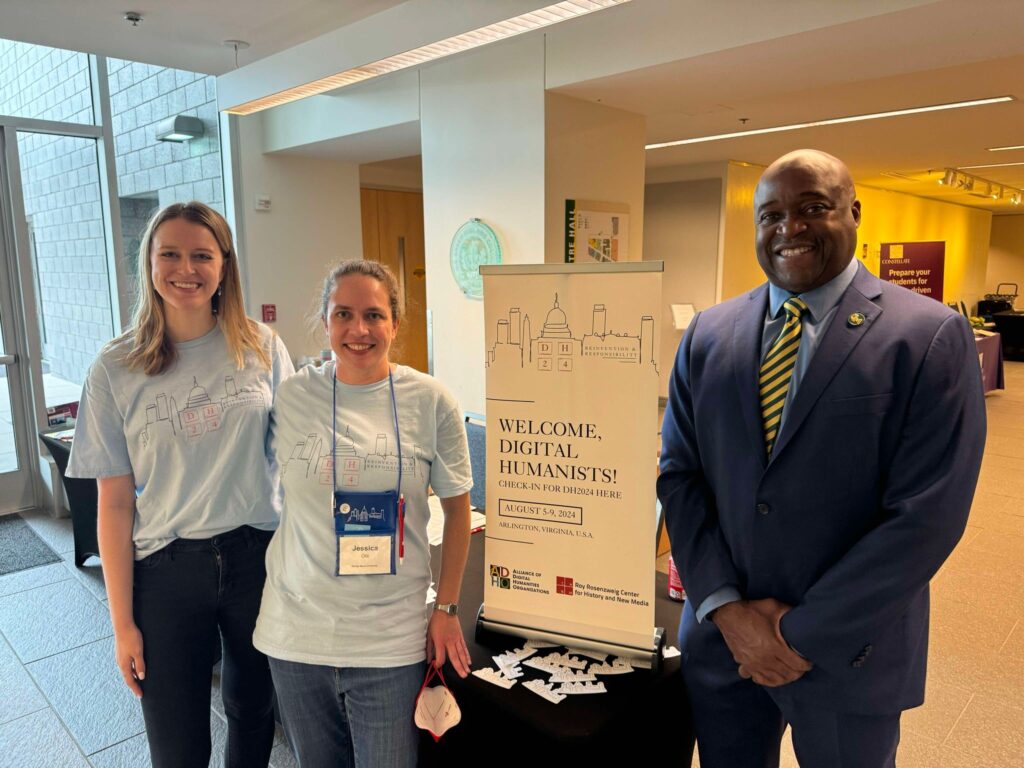RRCHNM Hosts DH 2024: Reinvention and Responsibility
For over 35 years, the annual Digital Humanities Conference, organized by the Alliance of Digital Humanities Organizations (ADHO), has been a premier gathering for scholars, researchers, practitioners, and professionals from around the globe. This event is a vital platform for fostering dialogue, sharing knowledge, and advancing digital research and teaching across various disciplines.
This year, the Roy Rosenzweig Center for History and New Media (RRCHNM) hosted DH2024, coinciding with the center’s 30th anniversary. Since its establishment, RRCHNM has championed the democratization of knowledge through innovative uses of digital media and technology. This mission aligns well with ADHO’s diverse international membership and wide range of disciplinary perspectives.
The theme for DH2024, “Reinvention and Responsibility,” emerged from our commitment to leverage the technological advancements and workflow innovations developed during the COVID-19 pandemic to create a more inclusive and responsible conference experience. We especially aimed to enhance the accessibility of DH conferences by ensuring that people who were unable to attend in person could still participate in meaningful and active ways. This hybrid approach was designed to rethink our standard practices and use the lessons of the pandemic to create something better than our pre-pandemic norms. DH2024 thus combined the strengths of both online and in-person formats to create a more inclusive and accessible experience.
The journey to hosting DH2024 began in 2022 when our team submitted a bid to be the local organizers for the 2024 conference. The initial excitement of being selected quickly gave way to intensive planning, budgeting, and organizing to prepare for a five-day event featuring numerous parallel sessions, plenary presentations, receptions, meetings, and social events. This past August, we successfully delivered on our commitment, hosting ~850 attendees—70% in person at our Arlington campus and 30% online. The hybrid model facilitated 334 papers, posters, roundtables, and workshops, with participants from 44 countries and 6 continents engaging as presenters, attendees, and volunteers.
Noteworthy features of the hybrid model included flipped sessions and remote poster presentations. Video presentations and high-resolution poster files were made available on the conference app before live synchronous sessions, allowing participants to review materials and engage with authors and creators beforehand, during, and after the conference.
The success of DH2024 was the result of the collective efforts of a dedicated team. The local organizing (LO) team, conference chairs, volunteers, facilities staff, banquet personnel, and tech team played crucial roles in executing the event. Notably, the LO team consisted of several dedicated RRCHNMers: Jessica Otis, Bridget Bukovich, Amanda Madden, Kristin Jacobsen, and Luz Mueller.

The university’s president, Dr. Gregory Washington, underscored the importance of the conference during his visit to the Arlington campus, commending the LO team and recognizing George Mason University’s role in international scholarly activities. Dr. Ann Ardis, Dean of the College of Humanities and Social Sciences, welcomed attendees during the Opening Ceremony, reaffirming Mason’s commitment to excellence in research and scholarship. Hosting, planning, and executing DH2024 has guaranteed our involvement in international scholarly production and brought the spotlight to innovation, research, and diversity, which are at the core of Mason’s and RRCHNM’s vision.

